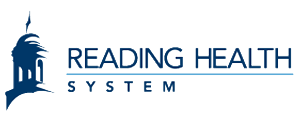Reading Health System will join healthcare organizations around the world in recognizing “World Sepsis Day” on Wednesday, September 13.
Sepsis is caused by a body’s overwhelming immune response to infection. When a person is septic, the body releases immune chemicals into the blood to combat the infection. These chemicals trigger widespread inflammation, which can impair blood flow and lead to tissue damage, organ failure or death.
As many as 1.6 million people are diagnosed with sepsis each year in the United States, a statistic that surpasses the number of people who experience heart attack or die from any one type of cancer in a given year. Sepsis causes up to 9 million deaths worldwide every year.
Education about sepsis is important, because the condition is often curable if caught early and treated appropriately. Sepsis symptoms may include shivering, fever, extreme pain or general discomfort, pale or discolored skin, sleepiness, confusion and shortness of breath. Because some of the symptoms mirror those of a cold or flu, sepsis may advance before someone realizes their condition is more than a cold or the flu.
Although groups most at-risk for sepsis include newborn babies, children, elderly, and people with chronic diseases and weakened immune systems, anyone can develop sepsis. Prevention of sepsis includes following a general hygiene plan, washing your hands and taking care of any open wounds.
If you think you may be septic, alert a medical professional immediately or call 911 and say, “I am concerned about sepsis.” If a patient in an emergency room or hospital is suspected of being septic, the hospital will give antibiotics and IV fluids and will conduct tests to determine the condition and best course of treatment.
On an international level, the Global Sepsis Alliance and World Health Organization (WHO) are co-hosting the “World Sepsis Congress Spotlight: Maternal and Neonatal Sepsis” on Tuesday, September 12. Earlier this year, WHO adopted a resolution to improve, prevent, diagnose and manage sepsis through a series of actions for countries throughout the world.




